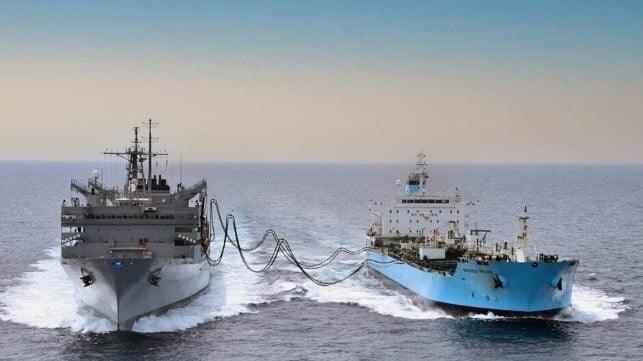White House Rails Against IMO Carbon Talks and Threatens Retaliation

At the final hour, the Trump administration has struck out against IMO plans for a global carbon tax on shipping, threatening to retaliate against an "unfair" standard that would treat all maritime carbon emissions equally around the world. The U.S. has also reportedly withdrawn its delegation from the talks, effective Wednesday.
The response is in line with the administration's combative rhetoric towards carbon regulations and other international agreements, but it is a stark departure from the neutral tone that U.S. negotiators previously maintained. It is unclear whether senior White House leadership was involved in formulating the more accommodating U.S. negotiating position that American representatives projected in the runup to this week's MEPC meeting in London, which ends Friday.
"Should such a blatantly unfair measure go forward, our government will consider reciprocal measures so as to offset any fees charged to U.S. ships and compensate the American people for any other economic harm from any adopted GHG emissions measures," the White House wrote in a last-minute warning to other national delegations. "We must be clear the U.S. rejects any and all efforts to impose economic measures against its ships based on GHG emissions or fuel choice."
Any participation in a tax on shipping's GHG emissions - the first global carbon levy of any kind - would have been in deep conflict with White House policy on climate change. President Donald Trump campaigned against climate action and withdrew the U.S. from the Paris Climate Agreement on the first day of his second term, and he has promoted the production and use of all fossil fuels - including the renewed use of coal, the most carbon-intensive fuel.
An IMO bunker levy would also boost shipbuilding activity in East Asia, which would undercut White House policy goals. The Trump administration wants to reduce the power of Chinese shipyards, which lead the market and would stand to benefit from any IMO incentives for green retrofits and newbuilds. China's state-owned CSSC is the world's largest commercial shipbuilder, and any additional merchant vessel orders would cross-subsidize its warship deliveries for the PLA Navy, the U.S. Navy's pacing threat.

that matters most
Get the latest maritime news delivered to your inbox daily.
Some environmental advocates have suggested that action at MEPC is still possible, despite U.S. threats of retaliation (and rumored opposition from certain oil-producing member states).
"Let’s not get dazzled by the drama — this isn’t the United States of Shipping," Seas at Risk shipping policy officer Anais Rios told Politico. "There are 175 countries in the room, and delegates are rolling up their sleeves to find the best path forward. One country trying to play the disruptor doesn’t change the fact that global cooperation is the real headline here."
